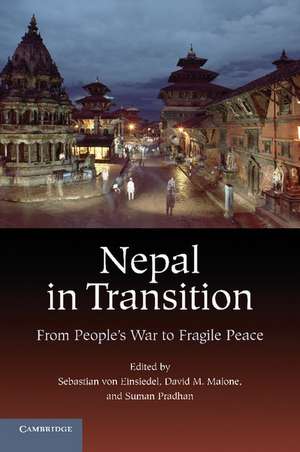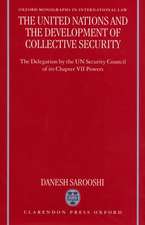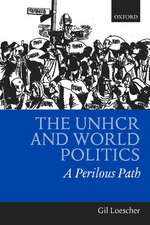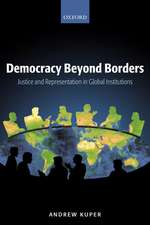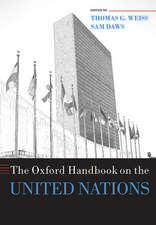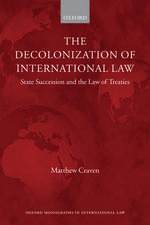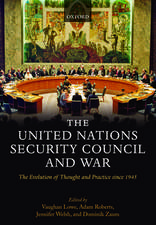Nepal in Transition: From People's War to Fragile Peace
Editat de Sebastian von Einsiedel, David M. Malone, Suman Pradhanen Limba Engleză Paperback – 11 mar 2012
| Toate formatele și edițiile | Preț | Express |
|---|---|---|
| Paperback (1) | 304.23 lei 6-8 săpt. | |
| Cambridge University Press – 11 mar 2012 | 304.23 lei 6-8 săpt. | |
| Hardback (1) | 593.30 lei 6-8 săpt. | |
| Cambridge University Press – 11 mar 2012 | 593.30 lei 6-8 săpt. |
Preț: 304.23 lei
Nou
Puncte Express: 456
Preț estimativ în valută:
58.22€ • 60.56$ • 48.07£
58.22€ • 60.56$ • 48.07£
Carte tipărită la comandă
Livrare economică 14-28 aprilie
Preluare comenzi: 021 569.72.76
Specificații
ISBN-13: 9781107668980
ISBN-10: 1107668980
Pagini: 414
Ilustrații: 9 b/w illus. 6 tables
Dimensiuni: 152 x 226 x 20 mm
Greutate: 0.54 kg
Ediția:New.
Editura: Cambridge University Press
Colecția Cambridge University Press
Locul publicării:New York, United States
ISBN-10: 1107668980
Pagini: 414
Ilustrații: 9 b/w illus. 6 tables
Dimensiuni: 152 x 226 x 20 mm
Greutate: 0.54 kg
Ediția:New.
Editura: Cambridge University Press
Colecția Cambridge University Press
Locul publicării:New York, United States
Cuprins
1. Introduction Sebastian von Einsiedel, David Malone and Suman Pradhan; Part I. The Context: 2. The making of the Maoist insurgency Deepak Thapa; 3. State power and the security sector: ideologies and interests Rhoderick Chalmers; 4. Nepal's failed development Devendra Raj Panday; 5. Ethnic politics and the building of an inclusive state Mahendra Lawoti; Part II. Critical Transition and the Role of Outsiders: 6. Masala peacemaking Teresa Whitfield; 7. A comprehensive peace? International human rights monitoring in Nepal Frederick Rawski and Mandira Sharma; 8. Support to Nepal's peace process: the role of the UN mission in Nepal Ian Martin; 9. Electing the constituent assembly Catinca Slavu; 10. Revolution by other means: the transformation of Nepal's Maoists Aditya Adhikari; Part III. Regional Dynamics: 11. A yam between two boulders: Nepal, India and China Rajeev Chaturvedy and David Malone; 12. Bringing the Maoists down from the hills: India's role S. D. Muni; 13. A Nepali perspective on international involvement Prashant Jha; Part IV. Conclusions: 14. Conclusions Sebastian von Einsiedel, David Malone and Suman Pradhan.
Recenzii
'Six years ago, the overthrow of the Nepalese monarchy and a negotiated peace brought the self-declared (but not Chinese-endorsed) Maoist insurgents into government in Nepal. Today, the country is stuck. The parties are deadlocked, the police and the courts are ineffective, and the bureaucracy is corrupt. Despite an agreement to merge forces, the army and the insurgents sit in separate camps, poised to resume fighting. A promised new constitution is overdue. The rural poverty, bonded-labor practices, and social and political exclusion of ethnic and caste minorities that sparked the insurgency remain unaddressed. Some benefit was gained from international aid efforts and two now-terminated UN missions, one focused on human rights and the other on peace monitoring - but not enough to create momentum. Nepal's giant neighbors, China and India, contend for strategic position with little concern for Nepal's complex internal problems. The book's deeply informed contributors from the diplomatic, nongovernmental organization, academic, and journalistic worlds look hard for rays of hope, but they find few.' Foreign Affairs
'Although a considerable time is required to alter dynamics of Nepali politics and to achieve sustainability in peace processes, this volume provides an in-depth assessment of Nepal's transition and present it as a valuable case study for those countries undergoing a similar transition. The subject matter is very impressive and beneficial for both academics and practitioners.' Padmini Tomer, Academic Council on the United Nations System
'Although a considerable time is required to alter dynamics of Nepali politics and to achieve sustainability in peace processes, this volume provides an in-depth assessment of Nepal's transition and present it as a valuable case study for those countries undergoing a similar transition. The subject matter is very impressive and beneficial for both academics and practitioners.' Padmini Tomer, Academic Council on the United Nations System
Descriere
This volume analyzes the context, dynamics and key players shaping Nepal's ongoing peace process.
